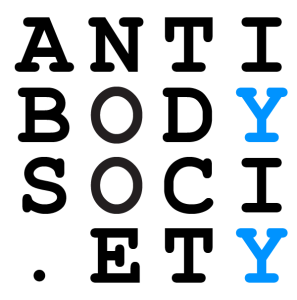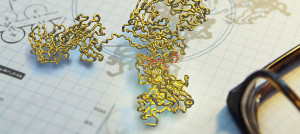Stimulating scientific exchange and education represent important aims of The Antibody Society. The Society therefore supports conferences in the antibody field through financial means and by providing scientific programming advice. The recognition of young and upcoming scientists with an Award for Excellence for best abstracts and presentations is a new Society initiative.
The Society’s first Award for Excellence was presented at the Waddensymposium, Antibodies: Central Players in Therapy and Disease, which was held June 25-26, 2018 in the remote town of Ouddorp in The Netherlands. An independent jury consisting of Prof. Stephen Beers (University of Southampton) and Dr. René Pfeiffle (University of Erlangen) selected Sanne van de Bovenkamp as the overall winner. The jury indicated that they were not only highly impressed by the quality of Sanne’s presentation but also by her demonstrated ability to engage in an insightful scientific discussion.
In her presentation, Sanne described her recent work on the impact of Fab-domain glycosylation in the adaptive antibody response. Her studies demonstrate that Fab-domain glycosylation is subject to clonal selection and impacts on antibody affinity. Sanne performed her graduate work at Sanquin Research with Dr. Theo Rispens. She is currently a postdoc at the department of Immunohematology and Blood Transfusion at the Leiden University Medical Center in Leiden with Prof. Leendert Trouw. She is pictured here with Society Board of Director’s member Dr. Paul W.H.I. Parren and Prof. Beers.



